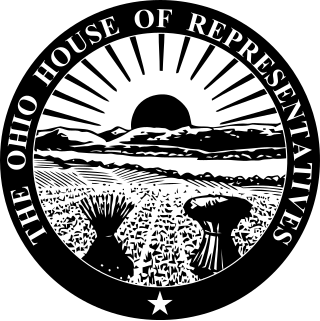 W
WProposition 227 was a California ballot proposition passed on the June 2, 1998, ballot. Proposition 227 was repealed by Proposition 58 on November 8, 2016.
 W
WProposition 47 was a proposition in the state of California on the November 5, 2002 ballot. The official title was "Kindergarten-University Public Education Facilities Bond Act of 2002." The proposition passed with 4,138,826 (59.1%) votes in favor and 2,869,577 (40.9%) against. It was placed on the ballot by a vote of the state legislature on AB 16.
 W
WThe Massachusetts English Language Education in Public Schools Initiative, Question 2 was a successful initiative voted on in the Massachusetts general election held on November 5, 2002. It was one of three 2002 ballot measures put to public vote, and the only one to pass.
 W
WProposition 55 was a California ballot proposition on the March 2, 2004 ballot. It passed with 3,239,706 (50.9%) votes in favor and 3,130,921 (49.1%) against. The official title was Kindergarten-University Public Education Facilities Bond Act of 2004. Its main provisions authorized the sale of $12.3 billion in bonds intended to relieve overcrowding and to repair public education facilities from public elementary schools through public universities.
 W
WProposition 58 is a California ballot proposition that passed on the November 8, 2016 ballot. Proposition 58 repealed bilingual education restrictions enacted by Proposition 227 in 1998.
 W
WMaine Question 2, formally An Act to Establish The Fund to Advance Public Kindergarten to Grade 12 Education, was a citizen-initiated referendum question that appeared on the Maine November 8, 2016 statewide ballot. It sought to increase state aid to public schools by instituting a surcharge of 3% on Maine income taxes for those with income above $200,000 a year. As the Maine Legislature and Governor Paul LePage declined to enact the proposal as written, it appeared on the ballot along with elections for President of the United States, Maine's two U.S. House seats, the Legislature, and various local elections.
 W
WA number of anti-evolution bills have been introduced in the United States Congress and State legislatures since 2001. Purporting to support academic freedom, supporters have contended that teachers, students, and college professors face intimidation and retaliation when discussing scientific criticisms of evolution, and therefore require protection. Critics of the legislation have pointed out that there are no credible scientific critiques of evolution. An investigation in Florida of the allegations of intimidation and retaliation found no evidence that it had occurred. The vast majority of the bills have been unsuccessful, with the one exception being Louisiana's Louisiana Science Education Act, which was enacted in 2008.
 W
WAnti-LGBT curriculum laws, sometimes referred to as no promo homo laws, are laws approved by various U.S. states that prohibit or limit the mention or discussion of homosexuality and transgender identity in public schools. In theory, these laws mainly apply to sex ed courses, but they can also be applied to other parts of the school curriculum as well as to extracurricular activities and organizations such as gay–straight alliances.
 W
WCalifornia Education Code 48907 (1977), also known as the California Student Free Expression Law, acts as a counter to the Hazelwood v. Kuhlmeier (1988) Supreme Court ruling, which limited the freedom of speech granted to public high school newspapers. The Hazelwood v. Kuhlmeier decision held that public school curricular student newspapers that have not been established as "forums for student expression" are subject to a lower level of First Amendment protection than independent student expression or newspapers established as forums for student expression. Ed Code 48907 affirms the right of high school newspapers to publish whatever they choose, so long as the content isn't explicitly obscene, libelous, or slanderous, and doesn’t incite students to violate any laws or school regulations. The newspaper content must also pass the minimal disruption test set forth in the Supreme Court ruling on Tinker v. Des Moines (1969). In contrast with Hazelwood, which limited First Amendment protection to only those high school newspapers that had, through practice or policy, been established as forums for student expression, Ed Code 48907 affirms the right of all newspapers to the freedom of expression.
 W
WIn 2002, Utah legislature passed a law that effectively changed the Utah state code, extending higher education in-state tuition to undocumented immigrants living and attending high school in Utah. The bill was presented in the 2002 general session of the Utah Legislature, and passed in the same session.
 W
WThe Ohio Fair School Funding Plan is bipartisan legislation introduced in the Ohio House of Representatives as House Bill 1 by Republican Rep. Jamie Callender and Democratic Rep. Bride Rose Sweeney. The bill creates a new school financing system for K-12 education in the state of Ohio.